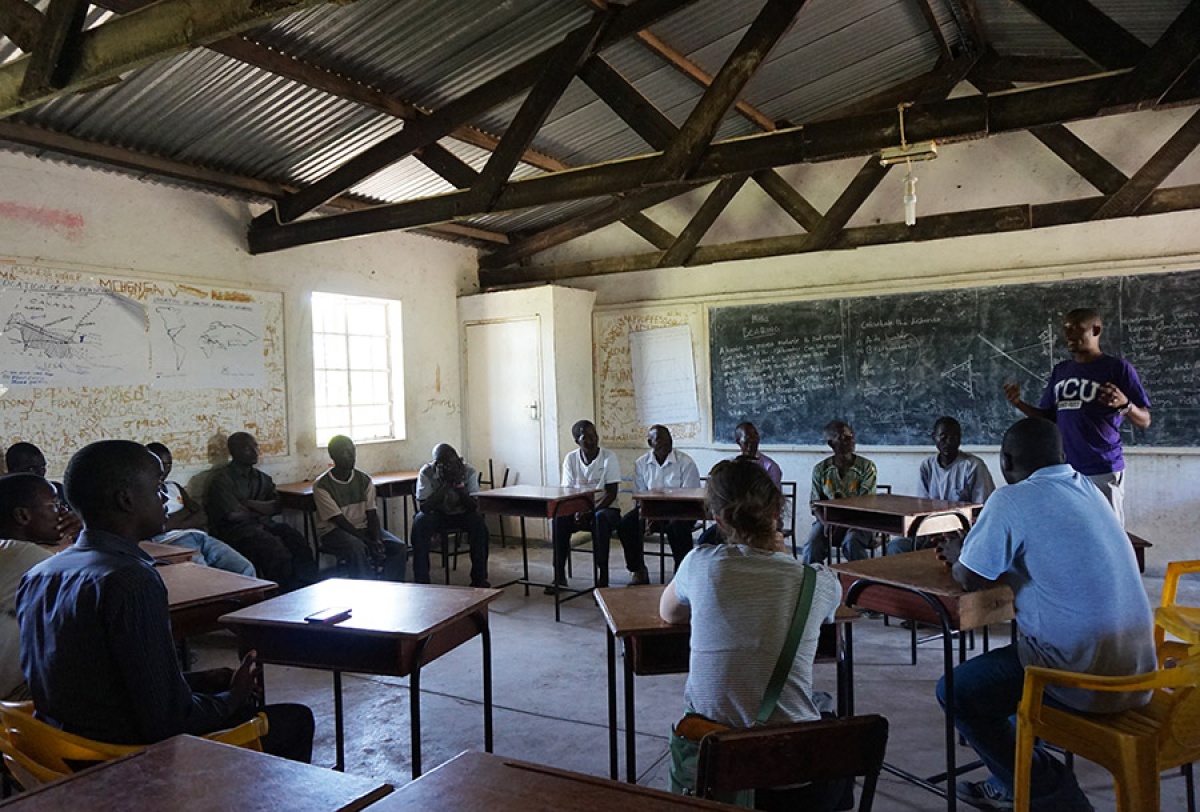PIH Responds to Malawi Floods with Mobile Clinic
Posted on Jan 28, 2015

Heavy rains and flooding devastated parts of southern Malawi this month, killing at least 79 people and displacing 174,000, according to government and United Nations estimates. In Neno District, where Partners In Health sister organization Abwenzi Pa Za Umoyo works with the Ministry of Health, an estimated 2,000 people have been displaced, and 150 acres of crops have been washed away.
The district’s Matope community bore the brunt of the deluge. In a town whose name means “mud” in the local language of Chichewa, rains are common. Residents said the storm that hit Matope in early January, however, was unprecedented.
As a first step of emergency response, PIH/APZU partnered with the Malawian Ministry of Health to organize a mobile clinic at a Matope school on Saturday. Staff members surveyed the situation, distributed basic supplies such as food and water purification tablets, and provided medical care. About 600 people attended, and it became clear that health in the community has suffered in the wake of the flood.
Some, like Elizabeth,* experienced traumatic injuries. When her house collapsed, the iron sheets of the roof fell onto her, wounding her leg. At the mobile clinic, the nurse removed her sutures and prescribed an exercise regimen that would allow her to regain her strength.

PIH nurse Vera Shaba removes sutures from Elizabeth's leg, which was injured when her roof fell in. (Photo: Lila Kerr/Partners In Health)
Other problems were slower to develop. Mele’s* house also collapsed because of the rains, and many of her possessions—including her mosquito net—washed away in the flood. In the weeks since, Mele and her two young children have had malaria. Much of Mele’s farm was flooded, and her food stores were ruined. This devastation not only puts her family at risk for malnourishment, but it also makes it difficult for Mele and her children to continue to take their HIV medication, which can be uncomfortable on an empty stomach.
Thirty-one-year-old Teleza* has lived in the Matope area all her life and said she has never seen such flooding. Teleza has been a patient of PIH/APZU for years: She receives HIV treatment and support and has been a beneficiary of the Program on Social and Economic Rights (POSER). She has been a banner POSER participant, transforming a $20 grant into a small farming business and then using the profits to construct a sturdier house, which she shares with her four daughters.
However, her success has been jeopardized by the floods, which washed away half of her crops and destroyed the house where her brother’s family had been staying. Teleza is now feeding her brother’s children in addition to her own, and she worries that the maize she saved from last year’s harvest will run out soon. And come harvest time, what’s left of her farm will barely yield enough food for her family, leaving her no choice but to stop business operations. Teleza has sought temporary work on other farms, but with so much of the community devastated by the floods, no opportunities exist.
Although the water has retreated for now, the resulting nutrition and agriculture emergency is likely to persist for months. Most people in Matope are subsistence farmers, meaning their crops must yield enough food to last until the next harvest. Many families lost their existing stores of maize along with their crops in the floods, leaving them with no food source for the immediate or long-term future. Group Headman Emmanuel Lunda, who oversees six villages in the Matope area, fears that without donations of food, seed, and fertilizer, people will die of hunger.
PIH/APZU is committed to providing relief and to helping rebuild this community, beginning with weekly mobile clinics based in the surrounding villages.
Support PIH/APZU’s efforts in Malawi
*Names have been changed to protect privacy.

